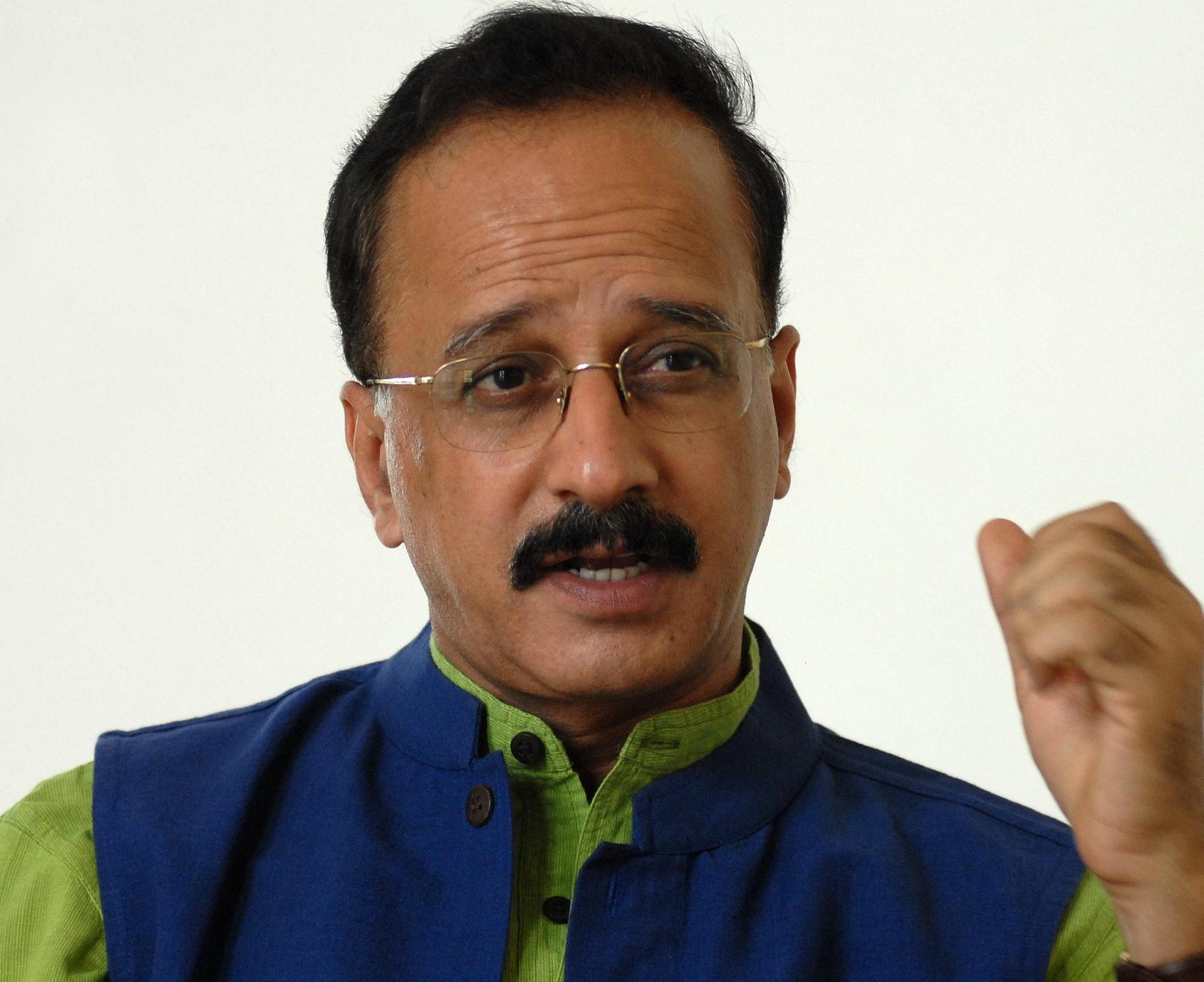
Devinder Sharma
Mr. Devinder Sharma is an agricultural scientist, journalist, writer and policy analyst who is well known around the world.
He had been called as an expert to be part of a working group in Geneva to prepare the groundwork on rights of peasants and other people working in rural areas, conducted in July 2013. Mr. Sharma had presented his paper there, and some of his points appears to have been adopted into the background paper since published by the Geneva Academy, of which I have a copy for personal study.
The first paragraph of the last page of the report by Christophe Golay on the Legal Reflections on the rights of peasants and other working groups in rural areas, prepared based on the above meeting of the working committee states :
- The negotiation that begins within the working group mandated to elaborate a UN Declaration on the rights of peasants and other people working in rural areas is a new exercise for peasant organizations, and in particular La Via Campesina. But it is not a new exercise for the UN and states that have been engaged in similar negotiation in the last 40 years, when they drafted international instruments protecting the rights of women, children, migrant workers and members of their families, persons belonging to minorities, human rights defenders, persons with disabilities, and indigenous peoples.
Sharma had started out studying Plant Breeding and Genetics and holds a Masters degree. He has been working for ten years with a mainstream Indian newspaper as an agricultural expert. During this time, the newspaper encouraged him to go to remote corners of India and spend sufficient time there to soak in the ambience and lifestyle, and the trials and tribulations of rural India, before composing his articles on what works and what might not, to improve rural Indian agriculture, lifestyle or economy.
This is something the media did in the past, as a social duty. This is also what the media does not engage with any more, ever since corporate moguls began controlling most of the world media, and kept profit as the main goal for their existence – quality and breadth of news delivered was no more to be the focus.
The first part of the talk covers basically the following points:
- Extreme bias towards the west and high-tech solutions within the Indian education system, and the thinking of both the educated class and the policy makers. This is pushing India towards economic dependence and subservience to the west. India will have to find its own solutions by thinking outside of the western box. Unfortunately, not enough folks are listening. This however, is a global problem, and not just an Indian problem. I can relate to this sitting in Canada.
- Exploitation of the rural landscape by the urban culture: this was noted and eloquently penned by Tagore a century ago. This has been the topic of discussion between greats of the time, including conversation between Tagore and Gandhi, towards seeking a solution for a free India of the future. Tagore had rightly realized that pushing the British out would not solve the problem of exploitation, which was systemic, and would need a change in paradigm – a new thinking and a new system to redress the relationship between urban and rural societies. Mr. Devinder Sharma has pointed out that this exploitation has not only not been eradicated by Independent India after the end of British Rule – it has in fact increased. While exploitation was limited to the labour of the rural population, now it has expanded to the resources lying under the feet of Rural india, and also to the very land they had been using for millennia. Everything is now being stolen. Again, this is not just a problem of India – but a global problem, created by free trade, corporatocracy and a hegemony of the west.
- Biodiversity – this is the saddest story of all – how the worlds biodiversity and richness of natural biomass or poorer nations is being stolen and those life forms being patented by foreign nations and corporations, with collusion and help from the very elite of those nations. How the Indian elite is knowingly or unknowingly being used as pawns to hand over their national resources to foreign corporations and governments. The extent of this mechanism created for international long term exploitation is both mind boggling, and depressing.
That is life, and that is what has been covered so far with the interview with Mr. Devinder Sharma of India. It was interesting to hear Mr. Sharma mention Vavilov of the Soviet Union, a brilliant man that attempted to collect food plant samples from around the world, and identified the Indian subcontinent as one of the hot spots of biodiversity. Stalin eventually got him killed in prison, because Vavilog’s ideas on genetics did not fit the then prevalent Communist ideas, where people’s or plants biological heritage was not supposed to matter, and excellence was solely to be saught from after-birth factors, and that all plants, like all men, were created equal. That, of course, was outside of the scope of this discussion, and was not covered.
 You can find the talk listed at the bottom of this page. It can be playing directly by clicking on it. You can also find it in iTunes, if you look for a podcast under the name of Tony Mitra, and go through the list of episodes. It can be identified by the logo at left.
You can find the talk listed at the bottom of this page. It can be playing directly by clicking on it. You can also find it in iTunes, if you look for a podcast under the name of Tony Mitra, and go through the list of episodes. It can be identified by the logo at left.
i hope the readers will like this podcast and will look forward for the rest of it.
